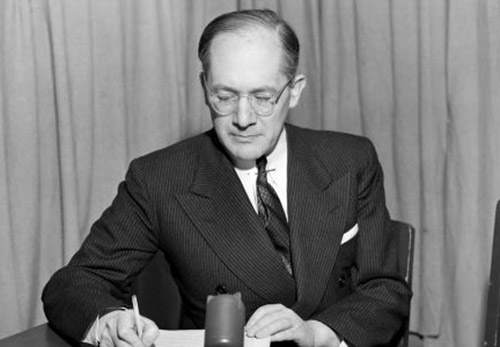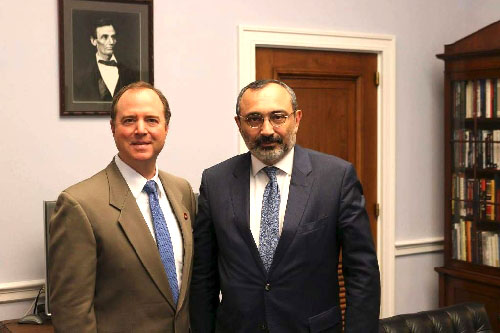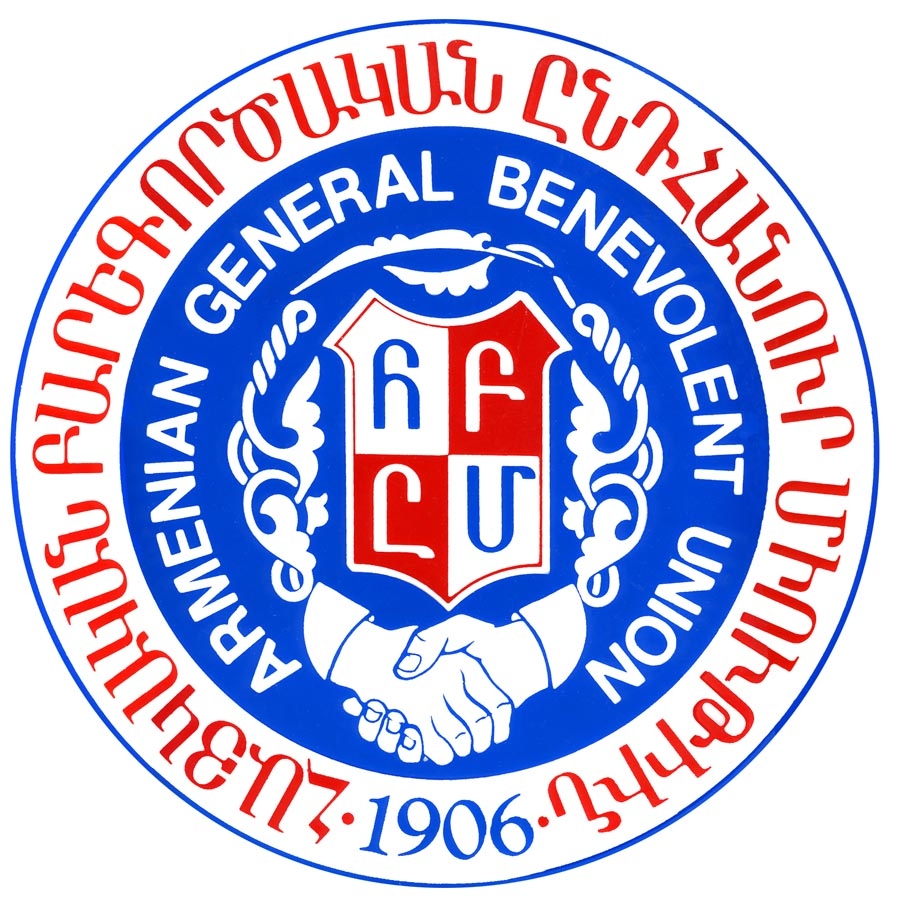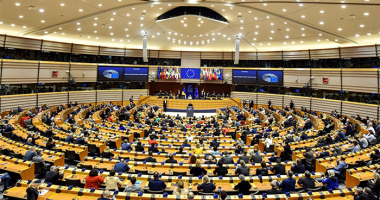The International New York Times has published an article by President Serzh Sarkisian. The full text of the article is below:
This year marks the centennial of the outbreak of the First World War, a human catastrophe unprecedented in scope and savagery claiming some 14 million lives — 5 million civilians and 9 million soldiers, plus millions of wounded, prisoners of war, and displaced people forced to leave their ancestral homelands. One such group, the Armenians, were nearly wiped off the face of the earth.
Next year the Armenian people will commemorate the centennial of the events that marked the culminations of the mass deportation and killing of the Armenian population of the Ottoman Empire. The year 1915 was the genocidal culmination of an Ottoman policy of ethnic cleansing and massacres of Armenians begun in the late 19th century and it was officially recognized as such at the time. On 24 May, 1915 the governments of Great Britain, France and Russia issued a joint statement announcing that “for about a month the Kurd and Turkish population of Armenia has been massacring Armenians with the connivance and often assistance of Ottoman authorities.” This was the first international document acknowledging these events as “ crimes ofTurkey against humanity and civilization”.
The scale and scope of atrocities committed by the Young Turk government made it an unprecedented historical tragedy, aimed at the total annihilation of a whole nation and claiming one and a half million Armenian lives. It nearly succeeded in its objective. In his 1929 book, “The World Crisis”, Winston Churchill would write that, “history will search in vain for the word Armenia”.
Indeed, the term “genocide” was coined by Polish legal scholar Raphael Lemkin as a term to define the mass killing of Armenians by the Ottoman authorities during the First World War as weel as the mass killing of Jews by the Nazis in the Second World War. In both cases, the genocide took place within the context of a more general war.
According to historian Mark Levene, it was warfare not of state versus state, but warfare of state versus nation. In other words, genocide could be thought of as a type of warfare that a state or regime carries out against a people.
The Armenian Genocide was a sad precursor to the Jewish Holocaust during the Second World War, and subsequent genocidal campaigns in Cambodia, Rwanda, and Darfur – a dark cycle of history repeating itself in part because of the unfinished business of the past. The fact that the Armenian genocide went unpunished offered encouragement to future dictators. Adolf Hitler, for one, concluded that the international community was prepared to tolerate such acts of genocide, especially when they occurred in the “fog of war.” The Armenian massacres were very much on Hitler`s mind when in 1931 –before he came to power – he discussed the need for a resettlement policy for non-German minorities: “We intend to introduce a resettlement policy. Think of the biblical deportations and the massacres of the Middle Ages… and remember the extermination of the Armenians … ” In 1939 Hitler echoed these words in the context of his treatment of the Polish population: “I have placed my death-head formations in readiness – for the present only in the East – with orders to them to send to death mercilessly and without compassion, men, women, and children of Polish derivation and language. Only thus shall we gain the living space [Lebensraum] which we need. Who, after all, speaks today of the annihilation of the Armenians?”
The Armenian Genocide reminds us of the risks of not learning the lessons of history, the dangers of genocide denial, and the long-term negative consequences of allowing crimes to go unrecognized and unpunished. Recognition of past genocides, such as the Armenian case, is key to understanding and preventing future genocides. Although there is a 1948 United Nations convention aimed at prevention of future genocides, we believe that this or any other document cannot be properly enforced unless previous genocides are exposed, recognized and punished. We consider the Armenian Genocide to be not only a tragedy for our nation, but also a crime against humanity of a global scale which was internationally recognized at the time and, if honestly acknowledged could have helped to prevent future atrocities. Armenia will continue to work actively with the United Nations and other international fora to achieve a universal condemnation of such acts in any part of the world.
The Commemoration of the Armenian Genocide has always been a solemn occasion for diaspora Armenians scattered all over the world, descendants of men and women who lived in their ancestral homeland for millennia before they were uprooted by bloody brute force. In the absence of an independent and free Armenia, the Diaspora and its institutions served as custodians of the Armenian legacy until therebirth of a free Armenian nation.
Then, 23 years ago, the Armenian tricolour was once again raised in Yerevan, symbolizing the rebirth of an independent homeland. The people of Armenia received another chance to live freely in their own country. Armenia’s renewed independence was an opportunity to begin a new era in relations with Turkey. Armenia’s position is reflected in the decades-long principle of establishing relations “without any preconditions.” This was the bottom-line principle for starting the negotiations with Turkey in 2008, and for the protocols signed in 2009. The idea was to avoid any stumbling blocks and to create a positive environment for the development of bilateral relations, understanding and reconciliation between the two societies after the establishment of diplomatic relations and the opening of borders.
Unfortunately, Turkey has backtracked from that agreement and refused to establish diplomatic relations, keeps its border with Armenia closed, maintains an illegal economic blockade, and denies the historic truth of past crimes and injustices. Historical truth aside, as long as the last section of the Iron Curtain — the Turkish-Armenian border — remains closed, it will impede the healthy development and regional integration in the Caucasus region, and will inject a constant element of instability in a strategically sensitive part of the world.
The future of Armenian-Turkish bilateral relations must be based on the historic rapprochement between the two nations. Acceptance of the historic truth can heal the deep-running discord between the Armenian and Turkish peoples. We believe that recognition of the Armenian Genocide can in no way be viewed as a humiliation, threat or attack on the Turkish people. Many Turkish intellectuals, writers and academics have begun to go down the difficult road of introspection and study, openly, courageously and with integrity. In this context, it is essential that the international community should support their action, and encourage Turkish political leaders to demonstrate the same attachment to justice and historic truth as some of their most respected private citizens have already done — to close, with honesty and humanity, one of the dark, unfinished chapters in human history.










